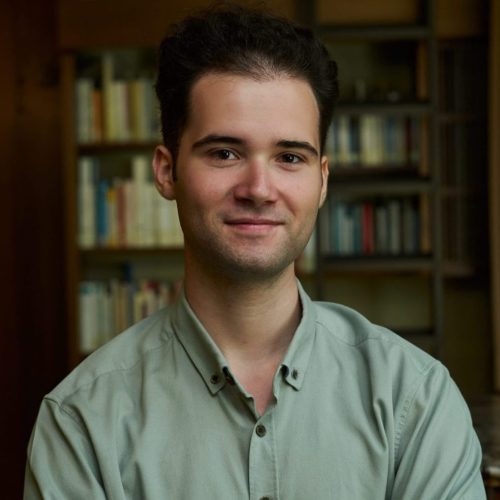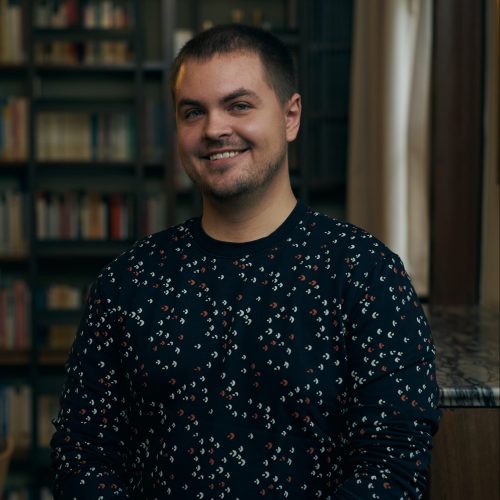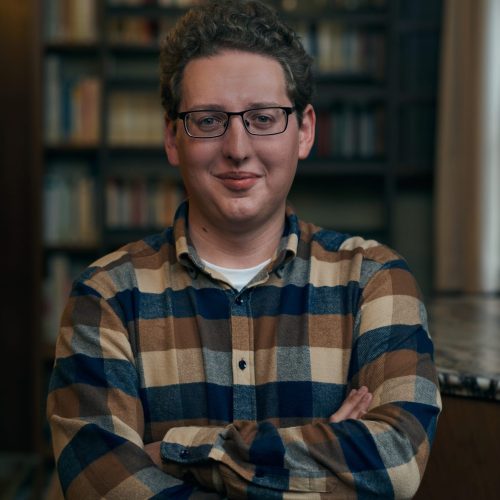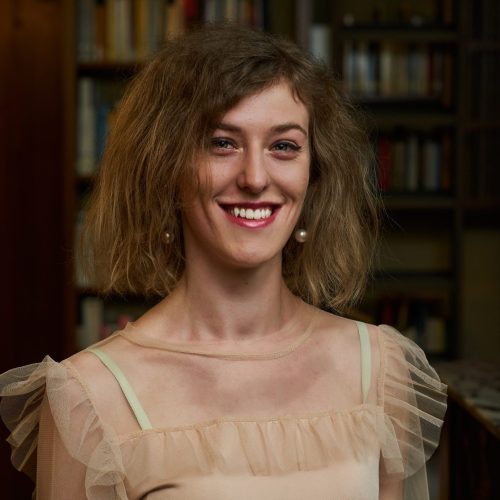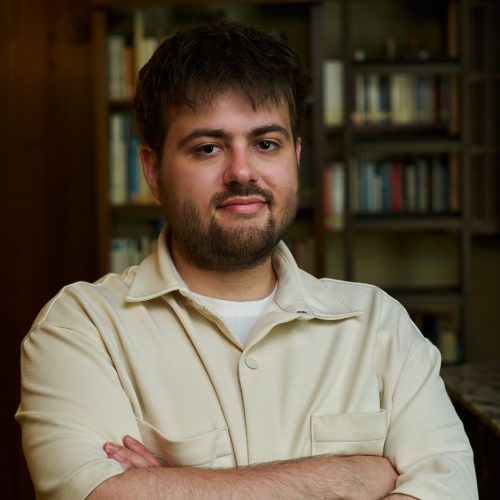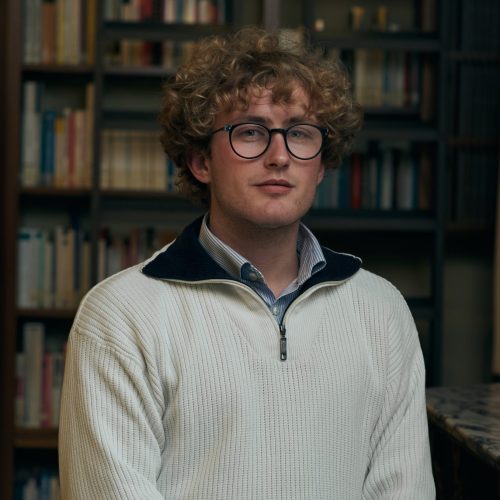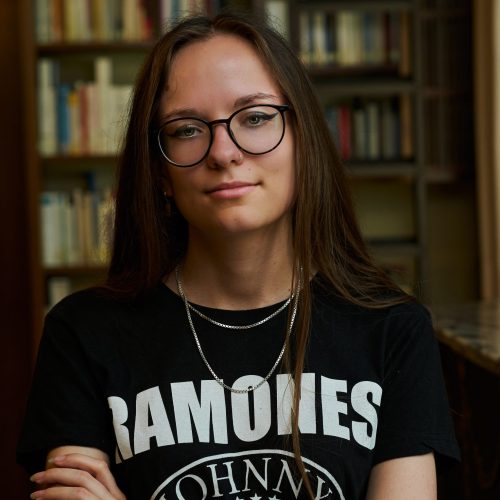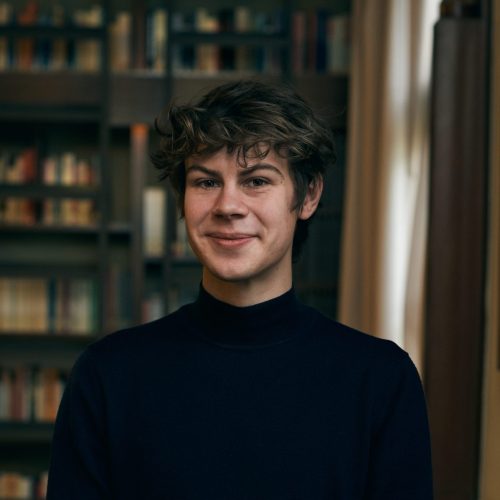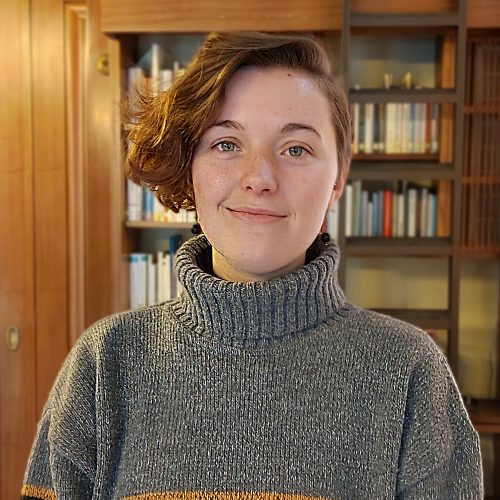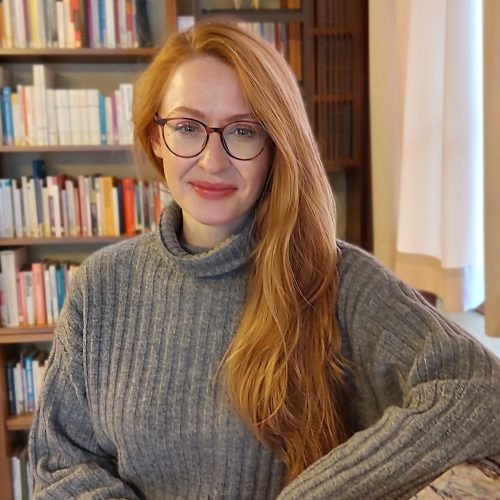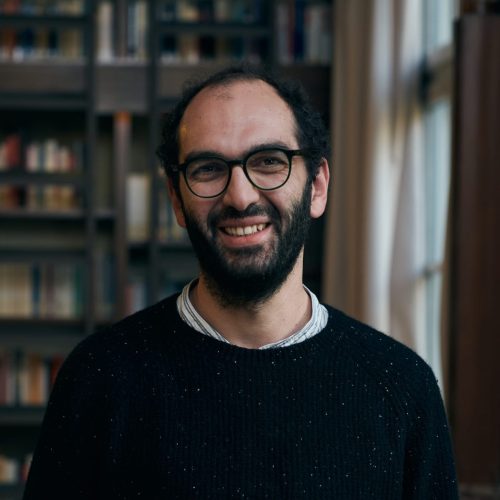
Aydin Alinejad
IT & TransferLab
Aydin Alinejad studied theatre at the LMU Munich. He has conceived screenplays, worked in the gaming industry and supports global dis:connect with IT and digital workflows. In addition, Aydin is a creative mind who assists staff and fellows in communicating their research.
Click HERE to email Aydin.

Aydin Alinejad
IT & TransferLab
Click HERE to email Aydin.
Aydin Alinejad studied theater at the LMU Munich. He realized screenplays, worked in the games industry and supports global dis:connect with IT and digital workflows. In addition, Aydin is a creative mind who assists staff and Fellows in communicating their research.
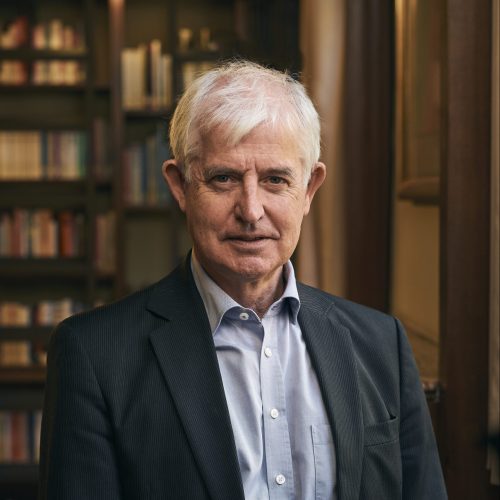
Christopher Balme
Director
Christopher Balme held the chair in theatre studies at LMU Munich until October 2022. He was born and educated in New Zealand, where he graduated from the University of Otago. He has lived and worked in Germany since 1985, with positions at the universities of Würzburg, Munich and Mainz. From 2004 to 2006 he held the chair in theatre studies at the University of Amsterdam. From 2007 to 2010 he was dean of the Faculty of History and Art at the University of Munich.
His current research interests focus on the legacy of modernism in the globalisation of the arts; theatre and the public sphere; and the relationship between media and performance.

Christopher Balme
Director
Christopher Balme held the chair in theatre studies at LMU Munich until October 2022. He was born and educated in New Zealand where he graduated from the University of Otago. He has lived and worked in Germany since 1985 with positions at the universities of Würzburg, Munich and Mainz. From 2004 to 2006 he held the chair in theatre studies at the University of Amsterdam. From 2007 to 2010 he was dean of the Faculty of History and Art at the University of Munich.
His current research interests focus on the legacy of modernism in the globalization of the arts; theatre and the public sphere; the relationship between media and performance.
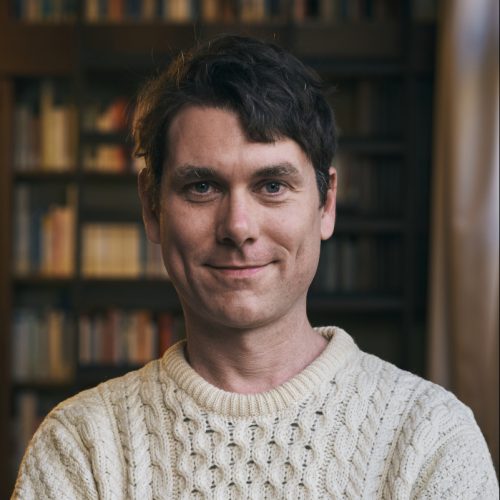
Nikolai Brandes
Postdoctoral researcher
Nikolai Brandes studied political science in Berlin and Coimbra (Portugal) and wrote a doctoral thesis on postcolonial perspectives on modernist architecture in Mozambique at the Department of African Art at the FU Berlin. He worked as a research associate at the Institute for History + Theory of Architecture at TU Braunschweig. From 2018 to 2021, he was a staff member of the National Museum of Denmark in Copenhagen.

Nikolai Brandes
Postdoctoral Researcher
Nikolai Brandes studied political science in Berlin and Coimbra (Portugal) and wrote a doctoral thesis on postcolonial perspectives on modernist architecture in Mozambique at the Department of African Art at the FU Berlin. He worked as a research associate at the Institute for History + Theory of Architecture at TU Braunschweig. From 2018 to 2021, he was a staff member of the National Museum of Denmark in Copenhagen.
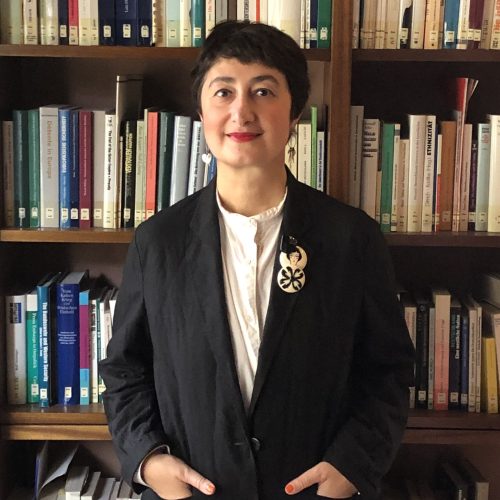
Burcu Dogramaci
Director
Burcu Dogramaci, born in Ankara, is professor of art history of 20th century and contemporary art at the LMU Munich. She earned her doctorate in 2000 and completed her habilitation in art history at the University of Hamburg in 2007 with a thesis on German-speaking architects and sculptors in Turkey after 1927. She received the fellowship of the Aby M. Warburg Prize (2006), was awarded the Kurt-Hartwig-Siemers Research Prize (2008) and the Teaching Prize by the Bavarian State Ministry (2014). She leads the ERC Consolidator Project, “Relocating Modernism: Global Metropolises, Modern Art and Exile (METROMOD)” (2017–2023). Her research areas are: exile, migration and flight, art, urbanity and architecture, photography, textile modernism and live art.

Burcu Dogramaci
Director
Burcu Dogramaci, born in Ankara, is Professor of Art History of 20th century and contemporary art at the LMU Munich. She earned her doctorate in 2000 and completed her habilitation in art history at the University of Hamburg in 2007 with a thesis on German-speaking architects and sculptors in Turkey after 1927. She received the fellowship of the Aby M. Warburg Prize (2006), was awarded the Kurt-Hartwig-Siemers Research Prize (2008) and the Teaching Prize by the Bavarian State Ministry (2014). She leads the ERC Consolidator Project, “Relocating Modernism: Global Metropolises, Modern Art and Exile (METROMOD)” (2017–2023). Her research areas are: exile, migration and flight, art, urbanity and architecture, photography, textile modernism, live art.
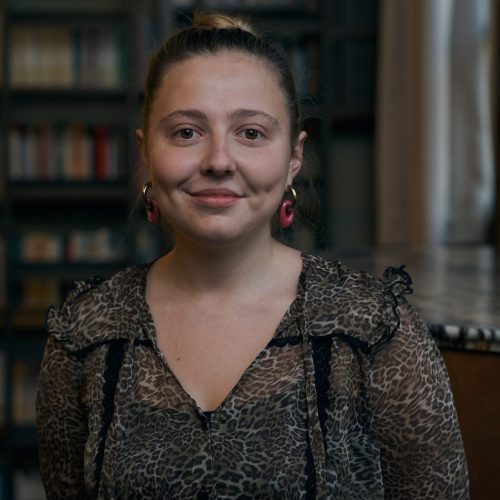
Sophie Eisenried
Communications officer
Sophie Eisenried is communications officer at global dis:connect. She obtained her master’s degree in art history at the LMU Munich with a thesis on ‘Fasia, la lotta continua!’ Fasia Jansen’s transsectional practice. She has worked as a student assistant at global dis:connect and supported Prof. Dr. Birte Kleine-Benne with her lecture Aktuelle Kunstgeschichte/n at the Bauhaus University Weimar. As an art historian, she focuses on art theories, artistic practices, institutional critique and especially on the connections and disconnections of social and political movements and art.
Click HERE to email Sophie.

Sophie Eisenried
Communications Officer
Click HERE to email Sophie.
Sophie Eisenried is communications officer at global dis:connect. She obtained her master’s degree in art history at the LMU Munich with a thesis on ‘Fasia, la lotta continua!’ Fasia Jansen’s transsectional practice. She has worked as a student assistant at global dis:connect and supported Prof. Dr. Birte Kleine-Benne with her lecture Aktuelle Kunstgeschichte/n at the Bauhaus University Weimar. As an art historian she focuses on art theories, artistic practices, institutional critique and especially on the connections and dis:connections of social and political movements and art.
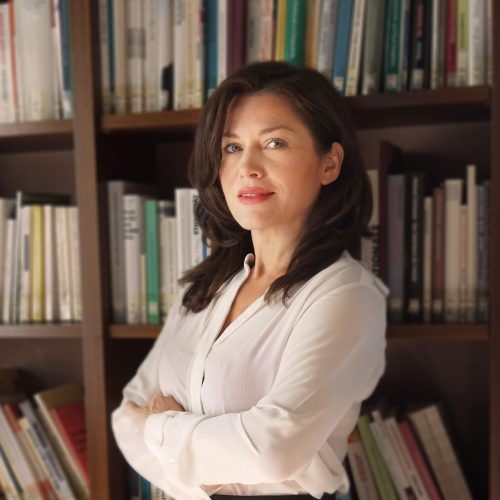
Hanni Geiger
Postdoctoral researcher
Hanni Geiger is an art historian with a background in global and transcultural art and (fashion) design from the 20th and 21st centuries; the interdependencies of exile, migration and artistic production; and digital art history. Her dissertation treated the British-Turkish artist and designer Hussein Chalayan whose transdisciplinary pieces are informed by the experience of migration (see selected publications). As a postdoctoral researcher at global dis:connect, Hanni is rethinking the Adriatic as a vacation destination where entanglements and disentanglements are revealed through the arts, design, architecture and crafts. Hanni coordinated the DFG Priority Program The Digital Image (LMU/Philipps Universität Marburg) and was a senior lecturer in the Department of Design at the AMD Akademie Mode & Design/Fresenius University of Applied Sciences, Munich.

Hanni Geiger
Postdoctoral Researcher
Hanni Geiger is a postdoctoral researcher at global dis:connect. She is investigating Mediterranean craft and design from the 1950s to 1970s in the East and South of the region. Read through the lens of dis:connective local cultures and their complex relationship to migration and tourism, the objects challenge the narrow national narratives of the sea and its design. She coordinated the DFG Priority Program The Digital Image (LMU/Philipps Universität Marburg) and was a senior lecturer in the Department of Design at the AMD Akademie Mode & Design/Fresenius University of Applied Sciences, Munich. Her research interests lay in global, postcolonial and transcultural art, design and craft from the 20th and 21st centuries, exile, migration and artistic production and digital art history.
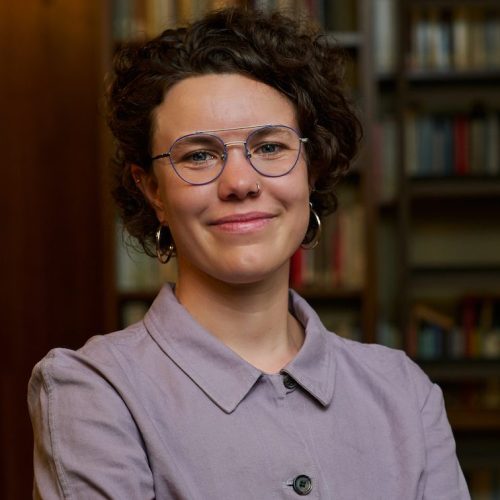
Meret Haack
Event management
After finishing her MA in Latin American Studies at the Freie Universität Berlin, Meret Haack worked as a trainee in the Cultural and Leisure Programme at the Goethe-Institut Munich. She’s now responsible for organising events at global dis:connect. She’s always up for a coffee and a chat about contemporary German literature.
Click HERE to email Meret.

Meret Haack
Event Management
Click HERE to email Meret.
After finishing her MA in Latin American Studies at the Freie Universität Berlin, Meret Haack worked as a trainee in the Cultural and Leisure Programme at the Goethe-Institut Munich. She’s now responsible for organising the Centre’s events. She’s always up for a coffee and a chat about contemporary German literature.
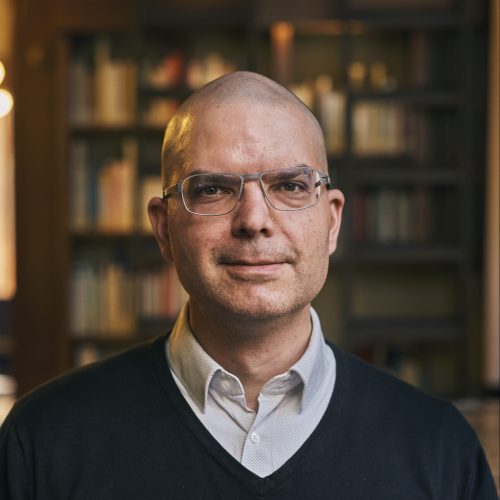
Ben Kamis
Managing editor
Ben Kamis is the managing editor at global dis:connect. He supervises the publications and supports staff and fellows in the publication of research. His background is in the field of international relations, and he has previously served as editor at the Max Planck Institute for Legal History and Legal Theory in Frankfurt.
Click HERE to email Ben.

Ben Kamis
Publications
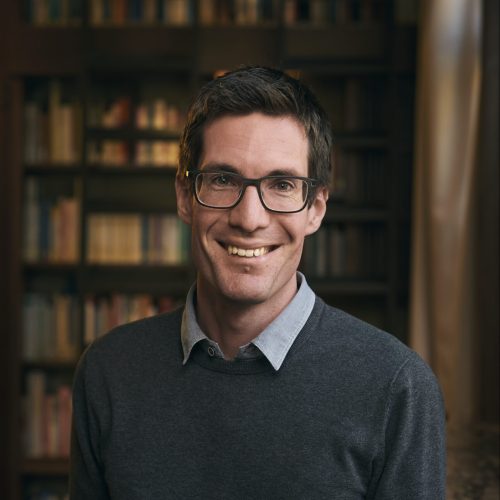
Tom Menger
Postdoctoral researcher
Tom Menger is a postdoctoral researcher at global dis:connect. He holds an MA in history from the University of Amsterdam and a PhD from the University of Cologne. His research interests lie in transimperial history, the history of colonial violence and the history of imperial infrastructures.

Tom Menger
Postdoctoral Researcher
Tom Menger is a postdoctoral researcher at global dis:connect. He holds an MA in History from the University of Amsterdam and a PhD from the University of Cologne. His research interests lay in transimperial history, the history of colonial violence, and the history of imperial infrastructures.
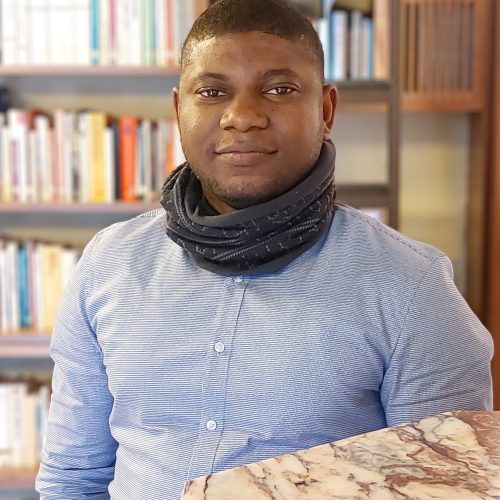
Gideon Ime Morison
Postdoctoral researcher
Gideon Morison, born and raised in the southern Nigerian cities of Calabar and Uyo, is currently a postdoctoral researcher at the Käte Hamburger Research Centre global dis:connect in Munich. He studied theatre, film and media studies at the Universities of Calabar and Uyo, where he also worked as an editor at Akata Press and as a tutor respectively. Before completing his PhD under the European Research Council’s Developing Theatre Project at LMU Munich, Gideon was a lecturer at the Department of Theatre Arts, Federal College of Education (Technical), Omoku. His research interests include theatre and media history, performance theory, literary criticism, development communication, festival and comparative cultural studies.

Gideon Ime Morison
Postdoctoral Researcher
Gideon Morison, born and raised in the southern Nigerian cities of Calabar and Uyo, is currently a postdoctoral researcher at the Käte Hamburger Research Centre global dis:connect in Munich. He studied theatre, film and media studies at the Universities of Calabar and Uyo, where he also worked as an editor at Akata Press and as a tutor respectively. Before completing his PhD under the European Research Council’s Developing Theatre Project at LMU Munich, Gideon was a lecturer at the Department of Theatre Arts, Federal College of Education (Technical), Omoku. His research interests include theatre and media history, performance theory, literary criticism, development communication, festival and comparative cultural studies.
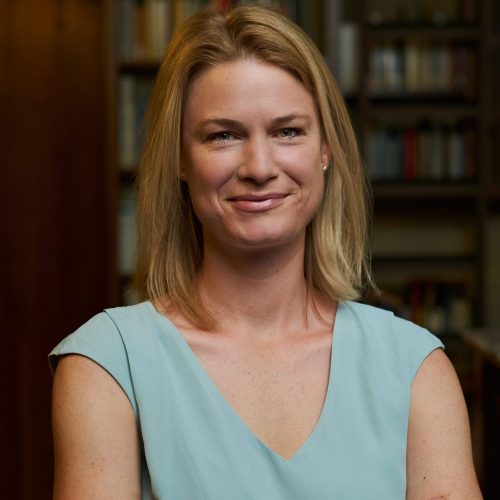
Veronika Proske
Fellow liaison
Veronika Proske is the fellow liaison at global dis:connect. She obtained her PhD in medieval history at the LMU with a study of diplomacy in Renaissance Italy. Before joining global dis:connect, she headed the Information Center of the German Academic Exchange Service (DAAD) in Budapest.
Click HERE to email Veronika.

Veronika Proske
Fellow Liaison
Click HERE to email Veronika.
Veronika Proske is the fellow liaison at global dis:connect. She obtained her PhD in medieval history at the LMU with a study of diplomacy in Renaissance Italy. Before joining the centre, she headed the Information Center of the German Academic Exchange Service (DAAD) in Budapest.
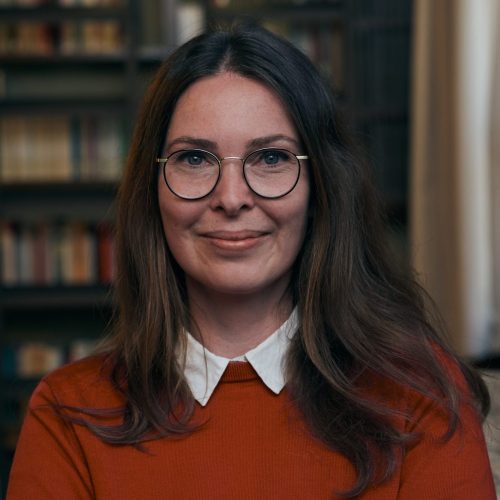
Laura Ritter
Managing director
Laura Ritter is the managing director at global dis:connect. She obtained her PhD in history at the University of Freiburg with a study on the Russian emigration in Germany after the Russian Revolution. Before joining global dis:connect, she was the coordinator of the Basel Graduate School of History at the Department of History at the University of Basel from 2018 to 2022.

Laura Ritter
Managing Director
Laura Ritter is global dis:connect’s managing director. She obtained her PhD in history at the University of Freiburg with a study on the Russian emigration in Germany after the Russian Revolution. Before joining the centre, she was the coordinator of the Basel Graduate School of History at the Department of History at the University of Basel from 2018 to 2022.
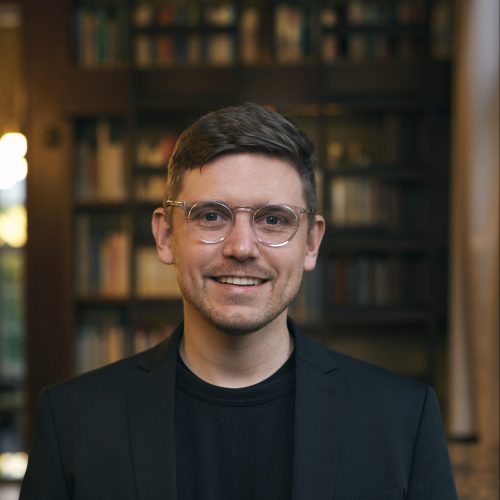
Christian Steinau
TransferLab
Christian Steinau founded the Cultural Policy Lab, based at the Institute for Theatre Studies at LMU Munich, and a non-profit spin-off, Cultural Policy Lab Research Services for data collection and commissioned studies in the field of cultural and creative industries.
Click HERE to email Christian.

Christian Steinau
TransferLab
Click HERE to email Christian.
Christian Steinau is the founder of the Cultural Policy Lab, based at the Institute for Theater Studies at LMU Munich, and of the non-profit spin-off Cultural Policy Lab Research Services for data collection and commissioned studies in the field of cultural and creative industries. At the Käte Hamburger Kolleg global dis:connect he heads the TransferLab, where new forms of knowledge and science transfer are developed and tested.
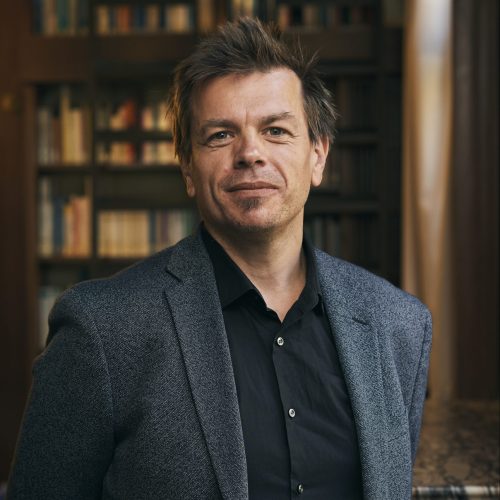
Roland Wenzlhuemer
Director
Roland Wenzlhuemer is professor of modern history at LMU. His work and research focuses primarily on colonial and global history. He investigated the socio-cultural transformation of colonial agrarian economies (Ceylon), researches the emergence and significance of global infrastructures (telegraphy), is interested in transitions and transits in global connections (intercontinental shipping) and deals with the theory and methods of global history.

Roland Wenzlhuemer
Director
Roland Wenzlhuemer is Professor of Modern History at LMU. His work and research focuses primarily on colonial and global history. He investigated the socio-cultural transformation of colonial agrarian economies (Ceylon), researches the emergence and significance of global infrastructures (telegraphy), is interested in transitions and transits in global connections (intercontinental shipping) and deals with the theory and method of global history.
Student Assistants
